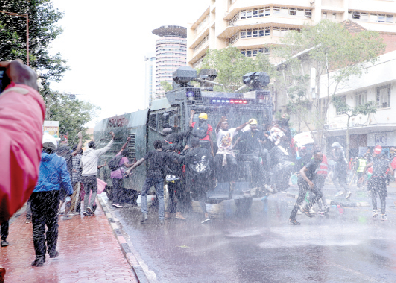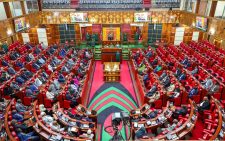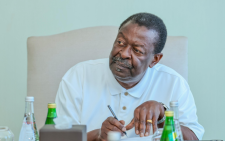Align protest laws with Constitution and international norms

The spontaneous protests that erupted in the Majengo slums of Nairobi on March 5, following the fatal shooting of a 17-year-old boy by a police officer, has once again brought to the fore the urgent need to align Kenya’s laws governing the right to protest with the Constitution and its obligations under international human rights law.
The police have attempted to explain away their obvious misuse of lethal force, claiming that officers on patrol randomly stopped a group of youths for a search on suspicion of drug trafficking. They went further to claim that a targeted suspect sounded the alarm and called for help from another group that was approaching. The group reportedly attacked and chased the officers, forcing one of them to open fire for protection.
From the explanation, it’s clear the victim was on the police radar and the target of the so-called “random” search. Ordinarily, the police need a warrant from a court of law to conduct such searches. But the law also allows them to stop and perform searches on individuals in certain situations based on “reasonable suspicion” where they believe a crime may be occurring.
The National Police Service Act allows the police to conduct “reasonable” searches on individuals who act suspiciously in a high-crime area, have received credible information linking someone to a crime, or if an officer can clearly see illegal items on someone’s person.
Riding on its vision of a democratic, prosperous, and equitable Kenya based on the essential values of human rights, equality, freedom, democracy, social justice and the rule of law, the Kenya National Civil Society Centre endeavours to make its contribution towards the realisation of a society in which the rules and their practice are in line with international standards and safeguard the rights and fundamental freedoms of citizens in their individual and collective capacities as civil society organisations, one in which domestic and international human rights mechanisms are integral to access to justice.
Article 2 (5) and (6) of the 2010 Constitution provides that “the general rules of international law shall form part of the law of Kenya, and that any treaty or convention ratified by Kenya shall form part of the law of Kenya”. The Constitution is the supreme law of the Republic, binding on all persons and State organs at both levels of government whenever they apply or interpret the Constitution; enact, apply or interpret any law; or make or implement public policy decisions.
In Article 10, the Constitution provides that the rule of law, democracy and participation of the people are integral to the country’s national values and principles of governance. The right to protest is a form of public participation, and by extension, democracy as a national value and its processes.
The Constitution provides further that any law, including customary law, that is inconsistent with the Constitution is void to the extent of the inconsistency, and any act or omission in contravention of the Constitution is invalid.
In September 2019, a report by Article 19 established that despite the Constitution mandating the State to ‘observe, respect, protect, promote and fulfil the rights and fundamental freedoms in the Bill of Rights, and to enact its obligations under international human rights law, relics of colonial and post-colonial laws continue to undermine the practice of the right to protest.
Article 244 of the Constitution obliges the police to “comply with constitutional standards of human rights and fundamental freedoms” and Article 21 binds the State to observe, respect, protect, promote and fulfil rights and fundamental freedoms. In practice, however, the police continue to use national legislation governing public-order situations that is yet to be amended to comply with the Constitution.
It’s time Kenya aligned laws governing the State’s obligation to observe, respect, protect, promote and fulfil the right to protest to accord with the Constitution and international obligations.
— The writer is the Executive Director of the Kenya National Civil Society Centre, and Chairperson of the Horn of Africa Civil Society Forum; suba_churchill@yahoo.com















